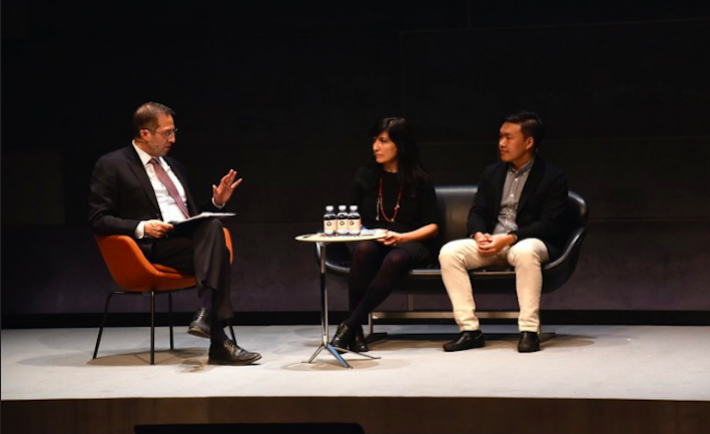
NDI president, Derek Mitchell, gives his thoughts on how to defend democracy at the Copenhagen Democracy Summit 2019.
For more than 35 years, NDI has worked to support democracy and human dignity in every corner of the globe. We currently work in 70 countries, and partner with thousands of courageous and committed individuals who are working to build a democratic future.
NDI president, Derek Mitchell, gives his thoughts on how to defend democracy at the Copenhagen Democracy Summit 2019. He talks about the challenges facing democracy, how we can prepare for the impact of technology, and why democracy is succeeding.
The Summit successfully brought together 500 participants from over 75 different countries with a range of backgrounds from politics, business, academia and journalism. The Summit offered a variety of viewpoints, the discussions highlighted both the challenges for the upcoming elections facing world democracies, but also the opportunities brought forward by technology.
Derek Mitchell: We have to get used to the fact that history never ends. The competition between autocracy and democracy will forever continue, as will the siren song of strongmen and demagogues who promise easy solutions to difficult problems, and prioritize the glory of the state over the dignity of the individual.
What are the biggest challenges that democracy faces today?
Human beings desire strong leadership, and may even have what Benjamin Franklin called a natural inclination to kingly government, and too often can succumb to demagoguery through appeals to fear and insecurity. There's a failure of those who traditionally were standard bearers of democracy and justice, and they are now not providing that leadership or serving as a model—a beacon—for those who struggle.
Going forward, how can we better prepare for the impact of technology?
We need to know how to talk about this. We need to know how to communicate about democracy—why this matters, why it's in our interest, why it's not just an idealistic idea, but very practical, very real for the peace, stability and security of the world. We have to cooperate to address the challenges of digital technology and platforms, to help companies (as we call it) "design for democracy," and consider ways for democratic development to connect with more traditional development needs in order to provide the tangible benefits—economic and otherwise—expected of citizens. Double down on investment in women. Take advantage of the youth bulge in much of the developing world to invest heavily in new generations, to develop from the earliest stages the new traditions, mindsets and ways of acting and interacting that promote democracy.
Where is democracy succeeding and why?
We should not forget this: That we are in a better place, that elections have never been more credible, that institutional and individual capacity has advanced significantly. [The] system is open to more voices than ever. More women, more young people, more LGBTI and other traditionally marginalized people are openly engaging in politics than ever before. Both the opportunities and the challenges to democracy are arguably more complex than we have ever faced. What is required therefore is neither complacency nor fatalism, but creativity, commitment and consistent joint effort. So for every Orbán or Duterte or Xi Jinping, there is a Jalabi, a Ressa, or a Wu. In fact, there's more of us than of them.
For more than 35 years, NDI has worked to support democracy and human dignity in every corner of the globe. We currently work in 70 countries, and partner with thousands of courageous and committed individuals who are working to build a democratic future. Please share this DemWorks video with all of your friends and family. Thanks for joining.
